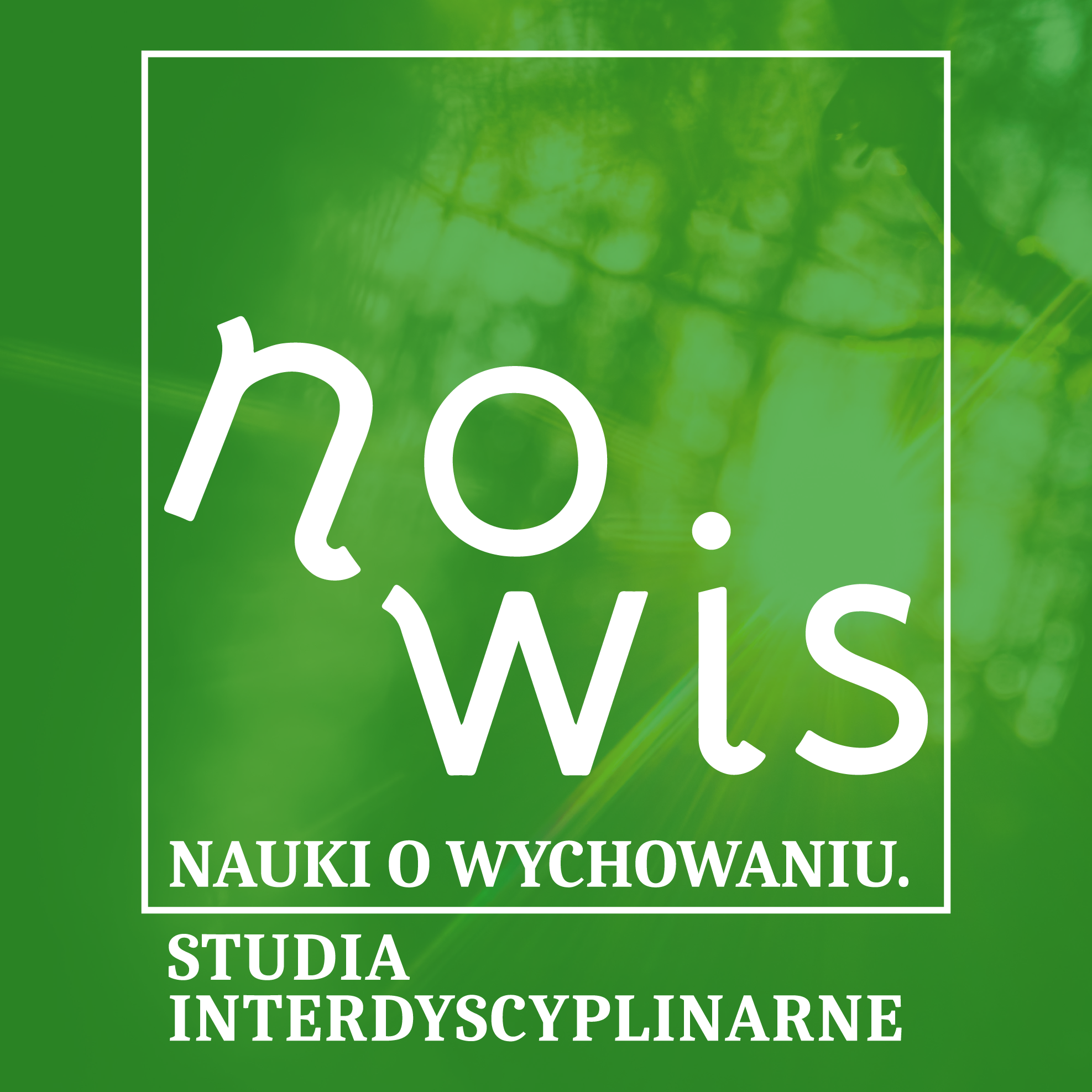Czy rzeczywiście jesteśmy skazani na edukacyjną porażkę? Pedagogika jako narzędzie wyzwolenia uciśnionych tego świata
DOI:
https://doi.org/10.18778/2450-4491.06.14Słowa kluczowe:
praktyka marksistowska, pedagogika krytyczna, utowarowienie edukacji, społeczna zmiana, klasa szkolna, wywrotowa praktyka edukacyjna, emancypacja, perspektywa krytycznaAbstrakt
W tym artykule reprezentuję radykalne podejście do władającego kapitalistycznego systemu eksploatacji. Celem mojej analizy jest wydobycie z pedagogiki krytycznej jej konstytutywnych elementów, żeby podważyć bazowe założenia społeczeństwa napędzanego pragnieniem ciągłego zysku. Henry Giroux i Peter McLaren jako dwaj radykalni myśliciele pokazują nam drogę, w ramach której możemy odebrać edukację z rąk ciemiężycieli. To nie jest łatwe zadanie, ale może być dokonane, jeśli podważymy obecny system za pomocą wywrotowych praktyk. W tym zadaniu kluczowa rola musi przypaść nauczycielom, którzy powinni brać pod uwagę obecność w klasie szkolnej różnych narracji kulturowych. Klasa szkolna nie jest neutralnym miejscem, w którym nauczyciel przekazuje obiektywną wiedzę, ale również przestrzenią, w której możemy zamknąć bądź otworzyć uczniom ścieżkę prowadzącą do ich wyzwolenia poprzez pokazanie im, jak przestrzeń społeczna w ich wspólnotach jest konstruowana poprzez relacje oparte na dominujących formach władzy i wiedzy. Nauczyciele, którzy są świadomi tego, w jaki sposób szkoła skutecznie realizuje swój ukryty program podporządkowania umysłów swoich uczniów, mogą zapobiegać jego realizacji poprzez wdrażanie alternatywnych strategii nauczania. Podsumowując: szkolna klasa jest bardzo ważnym miejscem, w którym możemy zniewolić bądź wyzwolić uczniów poprzez pokazanie im krytycznej perspektywy w stosunku do obecnego systemu kapitalistycznego – jaką proponuje nam marksistowska teoria i praktyka. Tym sposobem osiągniemy kamień milowy w transformacyjnym procesie prowadzącym uciśnionych do rozpoznania ich podległej pozycji w kulturze dominującej, co umożliwi im świadome organizowanie się w walce o wolność.
Bibliografia
-Bourdieu P., Passeron J. C. (2006) Reprodukcja. Elementy teorii systemu nauczania, tłum. E. Neyman, Warszawa, Wydawnictwo Naukowe PWN.
Google Scholar
Brzozowski S. (1983) Legenda Młodej Polski. Studya o strukturze duszy kulturalnej, Kraków–Wrocław, Wydawnictwo Literackie.
Google Scholar
Feyerabend P. K. (1996) Przeciw metodzie, tłum. S. Wiertlewski, Wrocław, Wydawnictwo Siedmioróg.
Google Scholar
Giroux H. A. (2010) Naga pedagogia i przekleństwo neoliberalizmu: przemyśleć edukację wyższą jako praktykę wolności, tłum. P. Zamojski w: H. A. Giroux, L. Witkowski, Edukacja i sfera publiczna. Idee i doświadczenia pedagogiki radykalnej, Kraków, Oficyna Wydawnicza „Impuls”, s. 281–298.
Google Scholar
Giroux H. A. (2010) Odzyskanie uniwersytetu jako demokratycznej sfery publicznej (by to, co pedagogiczne, było bardziej polityczne), tłum. M. Jaworska-Witkowska w: H. A. Giroux, L. Witkowski, Edukacja i sfera publiczna. Idee i doświadczenia pedagogiki radykalnej, Kraków, Oficyna Wydawnicza „Impuls”, s. 265–280.
Google Scholar
Giroux H. A. (2011) Zombie politics and culture in the age of casino capitalism, New York, Peter Lang Publishing.
Google Scholar
Kuhn T. S. (2009) Struktura rewolucji naukowych, tłum. H. Ostromęcka, Warszawa, Wydawnictwo ALETHEIA.
Google Scholar
Levidow L. (2009) Neoliberalne plany dla szkolnictwa wyższego w: Neoliberalizm przed trybunałem, A. Saad-Filho, D. Johnson (red.), tłum. J. P. Listwan, Warszawa, Książka i Prasa, s. 247–258.
Google Scholar
McLaren P. (2000) Che Guevara, Paulo Freire, and the pedagogy of revolution, Rowman & Littlefield Publishers.
Google Scholar
McLaren P. (2015) Życie w szkołach. Wprowadzenie do pedagogiki krytycznej, tłum. A. Dziemianowicz-Bąk, J. Dzierzgowski, M. Starnawski, Wrocław, Wydawnictwo Naukowe Dolnośląskiej Szkoły Wyższej.
Google Scholar
Popper K. R. (1977) Logika odkrycia naukowego, tłum. U. Niklas, Warszawa, Wydawnictwo Naukowe PWN.
Google Scholar
Shaikh, A. (2009) Ekonomiczna mitologia neoliberalizmu w: Neoliberalizm przed trybunałem, A. Saad-Filho, D. Johnson (red.), tłum. J. P. Listwan, Warszawa, Książka i Prasa, s. 73–86.
Google Scholar
Sloterdijk P. (2014) Musisz życie swe odmienić, tłum. J. Janiszewski, Warszawa, Wydawnictwo Naukowe PWN.
Google Scholar
Stiglitz J. S. (2015) Cena nierówności. W jaki sposób dzisiejsze podziały społeczne zagrażają naszej przyszłości, tłum. R. Mitoraj, Warszawa, Krytyka Polityczna, wersja mobi.
Google Scholar
Śliwerski B. (2012) Pedagogika ogólna. Podstawowe prawidłowości, Kraków, Oficyna Wydawnicza „Impuls”.
Google Scholar
Tormey S., Townshend J. (2010) Od teorii krytycznej do postmarksizmu, tłum. K. Szumlewicz, Warszawa, Wydawnictwo Naukowe PWN.
Google Scholar
Wheen F. (2007) Marks Kapitał. Biografia, tłum. P. Laskowski, Warszawa, Warszawskie Wydawnictwo Literackie MUZA SA.
Google Scholar
Žižek S. (2010) Lacan. Przewodnik Krytyki Politycznej, tłum. J. Kutyła, Warszawa, Wydawnictwo Krytyki Politycznej, wydanie II rozszerzone.
Google Scholar
https://www.theguardian.com/global-development/2017/jan/16/worlds-eightrichest-people-have-same-wealth-as-poorest-50 [dostęp 09.10.2017].
Google Scholar
Pobrania
Opublikowane
Jak cytować
Numer
Dział
Licencja

Utwór dostępny jest na licencji Creative Commons Uznanie autorstwa – Użycie niekomercyjne – Bez utworów zależnych 4.0 Międzynarodowe.





 Strona czasopisma, prowadzona przez Zespół redakcyjny NOWiS na platformie Index Copernicus:
Strona czasopisma, prowadzona przez Zespół redakcyjny NOWiS na platformie Index Copernicus: 





